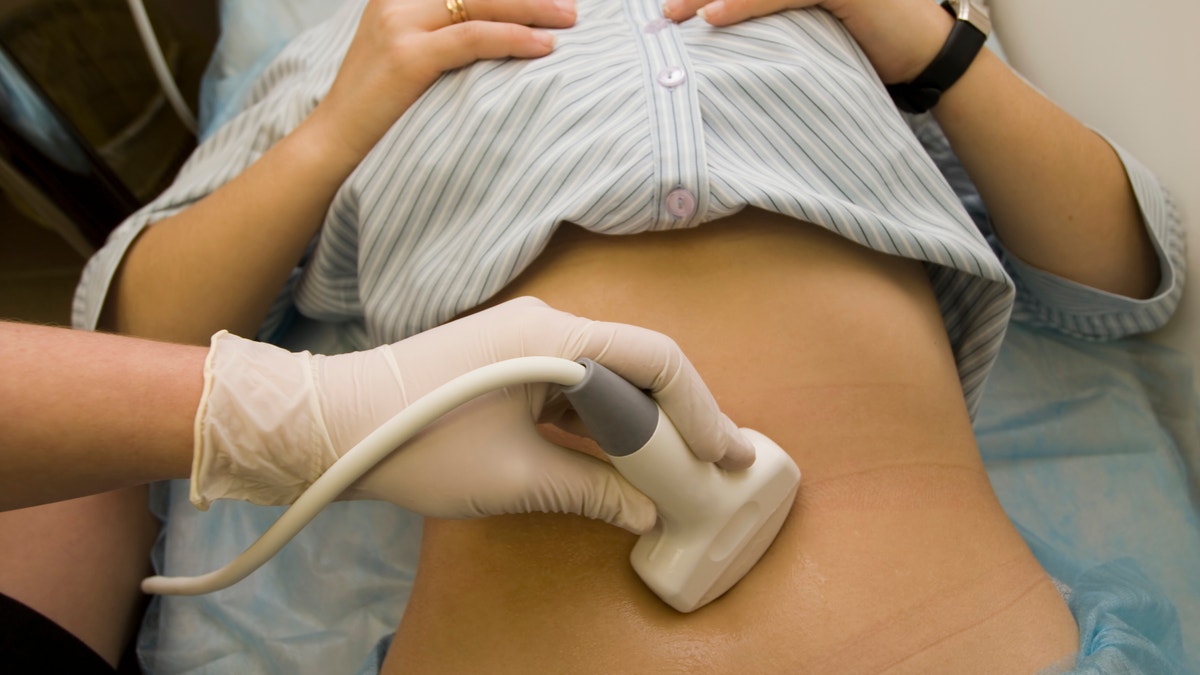
Scanning of a stomach of the woman. Scanning of a stomach of the pregnant woman in clinic. (iStock)
A new study suggesting that first-trimester fetal ultrasound may contribute to the severity of autism symptoms heightens a dilemma facing obstetricians: How to halt the widespread overuse of fetal ultrasound without scaring women away from this important medical procedure.
The study, published Sept. 1 in the journal Autism Research, is the latest in a series of highly limited studies that raise questions about the safety of fetal ultrasound. Some research is based on animal studies—fetal chicks and rats, for instance—that may not be relevant to humans. The latest study, based on the medical histories of 2,644 families with autistic children, relies on parents’ reports of their ultrasound experiences rather than actual records.
Some medical leaders worry that these studies could produce an unwarranted backlash of the sort that occurred when now-debunked research allegedly tied childhood vaccinations to autism. Fetal ultrasound, which uses sound waves to gain a view inside the womb, can determine the date of conception, identify multiple fetuses and detect various abnormalities, among other valuable medical information. In a press release issued this month in response to the Autism Research study, the Society of Diagnostic Medical Sonography said pregnant women “should not avoid having medically necessary examinations using ultrasound during pregnancy based on this limited study.”
Fetal ultrasound is being used at ever-rising rates far beyond medical guidelines. In a low-risk pregnancy free of complications—or about 80% of all pregnancies—maternal-fetal experts recommend two fetal ultrasounds, the first around 12 weeks and the second around 20 weeks.
But a 2013 study in the journal Seminars in Perinatology examined insurance data to find a mean of 4.55 ultrasounds per pregnancy in a “clearly low-risk population.” In 2014, usage in the U.S. of the most common fetal-ultrasound procedures averaged 5.2 per delivery, up 92% from 2004, according to an analysis of data compiled for The Wall Street Journal by FAIR Health Inc., a nonprofit aggregator of insurance claims. A Journal investigation found that many women with low-risk, complication-free pregnancies have more than a dozen fetal ultrasounds.








































